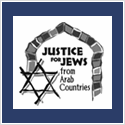Israeli TV journalist arrested twice, interrogated for hours in Libya
The Times of Israel
August 2, 2012
Leading Israeli journalist Emmanuel Rosen and his crew were arrested twice and interrogated for four hours while filming a documentary in Libya on life there after Muammar Gaddafi. Had his interrogators established that he was Jewish — or more grave still, Israeli — Rosen said on Wednesday, safely back in Israel, “the sky would have been the limit — and it would have been a pretty gray sky.”
Rosen and his crew, who were traveling on European passports, said they had no problems when filming at sites such as Gaddafi’s palaces. But they immediately attraced suspicion and hostility when they filmed at Jewish sites such as Tripoli’s Jewish quarter, a synagogue, and the home in Benghazi of a former Libyan Jewish leader, Raphael Luzon — who, thrown out of the country in 1967, now lives in London and was traveling with them.
They were arrested first in Tripoli, taken to an army base and interrogated by a man Rosen said was Libya’s minister of intelligence, before being allowed to leave. “We kept stressing that we were a European TV crew,” Rosen said in radio and TV interviews.
“The second time was much more complex and dangerous,” he said. Their car was stopped at a roadblock in Benghazi manned by soldiers and civilians, after they had been filming at Luzon’s former home. “They burst into our car, threw out the Libyan nationals who were with us, took our phones, and took us to an intelligence base. We were interrogated for four hours. They keep coming in and out and asking questions. The danger was that they would work out who we were. Of course we could not let them know that we were Jewish, let alone Israeli.”
Had they carefully checked his passport, he said, they would have realized he “frequently” visited Israel, he said. And if they had Googled him, they would swiftly have established his identity.
“The problem is that there’s no one to turn to for assistance. You are alone. There’s no consulate or embassy…. You are completely in their hands, and you don’t know what they want to do,” Rosen said. “There is a kind of anarchy there. There is no proper government or police.”
Rosen said his strategy was to be pleasant and confident with the captors and try to build a rapport, and that this ultimately prevailed. Rosen and his team were forced to leave behind their equipment and were told to leave their film as well. But they were able to make copies, and only left behind what they wanted to, he said.


